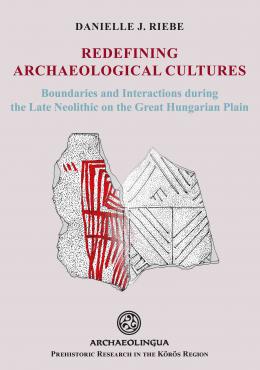Redefining Archaeological Cultures

Redefining Archaeological Cultures
| 18 258 Ft |
| Price |
Archaeolingua Series Maior 42; Praehistoric Research in the Körös Region 5
Budapest, Archaeolingua, 2021
Keménytábla | Hardcover
311 oldal, színes és fekete-fehér illusztrációkkal | 311 pages with colored and grayscale images
ISBN 978-615-5766-45-9
Boundaries exist because people interact. These interactions become embedded in material culture, and from production until discard, people use objects to create, reinforce, and dispute socio-cultural boundaries. This volume seeks to challenge and transform how archaeologists define socio-cultural boundaries by reconstructing interactions through the assessment of various materials using an array of analytical techniques. During the Late Neolithic (5000–4500 BC), the communities of two major archaeological cultures, the Tisza and the Herpály, occupied the Great Hungarian Plain. These groups, traditionally defined based on the presence and absence of certain material traits, have long been reified in the archaeological literature. This study illustrates that group affiliation cannot solely be defined by material traits but rather by the degree of connectivity between sites. Based on the analyses conducted on archaeological materials from 12 Late Neolithic sites across the Great Hungarian Plain, an actively enforced socio-cultural boundary can be modeled between the Tisza and Herpály archaeological cultures. This research has far reaching implications for how archaeologists can view interactions as a way to measure, reconstruct, and model socio-cultural boundaries throughout time and space.
| |
|
|
1067 Budapest, Teréz krt. 13. |
|
|
|
|
About us
The Archaeolingua Foundation and Publisher is involved in publishing series and standalone publications in the disciplines of archaeology, linguistics, historic sciences and heritage protection for over 25 years.
Learn more
Publishing
We publish both as standalone editions and as a volume of a professional series.
Learn more
Contact us
Archaeolingua Foundation

